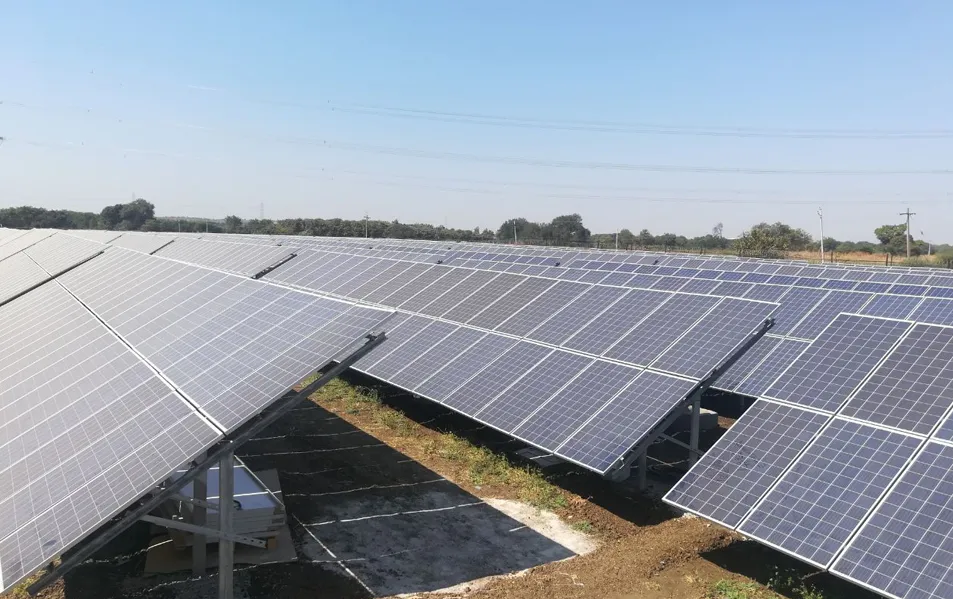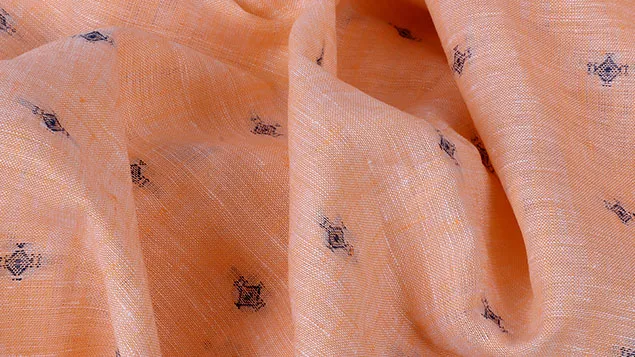Weaving sustainability within a fabric celebrated through centuries
- Copy
Sustainability is part of the DNA at Grasim, and extends across its product offerings, processes, and people culture. Grasim, ranked 9th among the top 10 Indian corporates for its sustainability and CSR practices by the ET and Futurescape ‘Responsible Business Rankings 2020’, has been the pioneer of linen in India. Through ‘Linen Club’ – the leading linen brand in the country with sustainability at its roots, it boasts of a strong legacy spanning over seven decades.
Linen, derived from the flax plant, is 100% natural, and known to be one of the strongest fabrics in the world. Used since the days of the ancient Egyptians, it is totally environment-friendly -- safely recyclable and biodegradable. Linen fibre requires less irrigation and energy. Grasim sources its flax from France and Belgium – the regions that produce the world’s most premium quality of flax. The company has made a conscious decision to opt for natural dew-retted flax, which significantly reduces the water consumed in the supply chain.
Through the European Flax label and audit process, Grasim ensures that the flax it uses is cultivated sustainably and has minimal wastage. Grasim has been consistently acknowledged for its successful implementation and promotion of sustainable practices, policies and initiatives.

Becoming energy efficient and water neutral
Grasim has installed rooftop solar plants to harness the sun’s energy and reduce dependence on the grid by 5-10%. This helps build energy efficiency in its linen plants.
The company has also put in place water recycling initiatives. Towards this, it is deeply committed to reducing freshwater consumption. Its water recycling plants, along with other micro installations, collectively contribute to achieving its water recycling targets. Through this, the company has eliminated the release of effluents in the environment. In addition, sustainable sourcing has been a priority. The flax used for linen manufacturing is cultivated sustainably, minimising water usage. Water-retted flax has been replaced by a natural dew-retted flax, thus extending nature’s role in creating the fibres and going a long way in reducing water consumption.
Creating Wealth-Out-Of-Waste
The Wealth-Out-Of-Waste (WOW) programme is an innovation driven by the idea of a circular economy based on recycling, reuse and industrial symbiosis. It upcycles flax production waste to create blended yarn and line-rich fabric as well as ready-to-wear apparel. These products lead to reduced demand for material and energy, and in turn, result in greener products.
The WOW programme, generating value out of excess flax, also creates recycled bags that are given out to customers when they purchase Linen Club products at stores. All this has been possible on account of sustainability being an intrinsic business principle.
Sustainable partnerships, inspiring a wide range of designs
Grasim’s sustainability initiatives extend to strategic collaborations within the industry. A fulfilling partnership with the European Confederation of Linen and Hemp (CELC) has cemented Linen Club's position as India's finest linen brand. Linen Club offers the widest range of designs and colours in the world, producing 3,000+ designs every year. Recently, it has forayed into ready-to-wear garments and accessories under the brand ‘Linen Club Studio’, with over 6,000 point of sales.

Why linen
Centuries ago, linen fabric was venerated for its purity and longevity. Linen is a fabric that gets softer the more it is washed. It is hypoallergic and absorbs twice as much moisture as cotton, making it the ‘most-thirsty fabric’. Linen protects the skin from harmful UV rays and sun allergies. It is a ‘health fabric’ because it is inherently anti-bacterial. It remains intact and safe even when worn repeatedly out in the sun.
Linen is 20% stronger when it's wet. That's why it deals with washing better than other fabrics. Linen can absorb 20% of its weight in moisture and still feel dry to the touch. The tensile strength of linen is twice as much as cotton and the fabric is 3 times as strong as wool. Linen conducts heat 5 times better than wool and 19 times better than silk.
Recently, Grasim introduced its meticulously curated treated antiviral fabric range -- Linen Club LinShield, which is a natural fabric that is breathable, comfortable and skin-friendly.
Through its sustainability journey, Grasim’s vision is to go beyond sustainable operations and create sustainable products and value chains to continuously improve business practices and strike a balance between economic growth and create positive social and environmental impact for the benefit of all our stakeholders. Over the years, this has been embodied in its linen range of garments.
Mr. Sandeep Gurumurthi
Group Head, Communication & Brand
Aditya Birla Management Corporation Pvt. Ltd.
Call: +91-22-6652-5000 / 2499-5000
Fax: +91-22-6652-5741 / 42

















